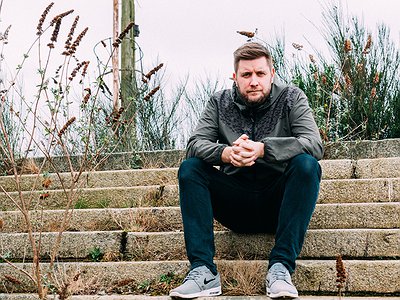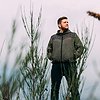Could you take us through a day in your life, from a possible morning routine through to your work? Do you have a fixed schedule? How do music and other aspects of your life feed back into each other - do you separate them or instead try to make them blend seamlessly?
I go through phases with music making where sometimes I’ll go for months without making and music at all, then when I get the fire it’s all I want to do. I’m lucky to have the flexibility as I run my own music school in Glasgow called subSine Academy. I am an Ableton Certified Trainer and teach people music production from beginner right through to mixing and mastering alongside some other great teachers who are in the industry.
So I spend every day in the studio in one way or another – listening to students' tracks and giving feedback, mastering, working on the school and when I get my creative bursts making music continuously. I definitely don’t have a fixed schedule of any kind. After coming home at night, I take myself totally out of the music world – I like having the distinction of the studio as a place to work and of home as a place to relax.
Could you describe your creative process on the basis of a piece or album that's particularly dear to you, please? Where did the ideas come from, how were they transformed in your mind, what did you start with and how do you refine these beginnings into the finished work of art?
My upcoming album Narisshu was the product of several (OK … more than that) months of working continuously in the studio at the end of 2018. As always I spent a lot of time out recording field recordings as my initial inspiration – I love capturing rain, the sound of water, environments and then twisting them into textures in the music. So a lot of the tracks started either as a field recording which invoke a mood or as a synth jam that caught my attention.
Some of the tracks in the album are simply live recordings that came out pretty much in one take with a little tweaking afterwards, and some are laboriously mixed together to form continuous stretches of music that are designed to immerse the listener and take them somewhere. I felt really comfortable with this album in my abilities within the studio so I was able to truly express what I was feeling. Whether that is received well at the other end remains to be seen..
There are many descriptions of the ideal state of mind for being creative. What is it like for you? What supports this ideal state of mind and what are distractions? Are there strategies to enter into this state more easily?
Like many extroverted people I draw my energy from social situations, and so I often find that conditions for my music are perfect late on a Sunday night into Monday morning after a long weekend of socialising or performing. Being in an social energetic environment the night before leaves me feeling reflective and calm and this is what works for me for coming up with new ideas and experimenting.
If new ideas aren’t coming easily to me, then I should often check to make sure that I’ve been catching up with people and experiencing things outwith my daily ‚routine‘ – you need inspiration from somewhere.
How is playing live and writing music in the studio connected? What do you achieve and draw from each experience personally? How do you see the relationship between improvisation and composition in this regard?
For me they are two separate processes, with different setups and workflows that I have refined over the years. The studio is a place for experimentation – rearranging things, plugging in instruments in different ways, getting lost in modular synthesis patches etc. Whereas my live set is about refinement – bringing in elements from tracks and working out how to play them out in a way that is both tweakable and improvised but also sounds full and polished.
How do you see the relationship between the 'sound' aspects of music and the 'composition' aspects? How do you work with sound and timbre to meet certain production ideas and in which way can certain sounds already take on compositional qualities?
I feel like my music, and in particular this upcoming album, has an aesthetic which is derived from the choice of timbre for each sound used in the projects. This isn’t a conscious decision but like all music is one inspired by my influences. So field recordings and grainy melodic synth recordings are what appeal to me, and that is why my music sounds like it does.
Our sense of hearing shares intriguing connections to other senses. From your experience, what are some of the most inspiring overlaps between different senses - and what do they tell us about the way our senses work? What happens to sound at its outermost borders?
The physicality of the low end of the sonic spectrum on a perfect sound system can’t be denied as the most enticing connection between the senses..
Art can be a purpose in its own right, but it can also directly feed back into everyday life, take on a social and political role and lead to more engagement. Can you describe your approach to art and being an artist?
I use music as a way to react to the world around me, but not necessarily always a deep and meaningful way. Sometimes it’s just interactions with friends that inspire me, often it’s my own fading memories that the music relates to – near-forgotten childhood memories or experiences from around the world. Rarely am I thinking politically when working on music – I reserve that for my home life as the world makes me too sad to make beautiful music right now.
It is remarkable, in a way, that we have arrived in the 21st century with the basic concept of music still intact. Do you have a vision of music, an idea of what music could be beyond its current form?
Yeah – music seems to have the power to transcend eras and is perhaps even more relevant today than it has ever been. However music has changed its focus from being a communal activity that anyone could participate in, to something which is performed by the elite and admired by the masses. I think the rise of community singing groups is symptomatic of looking to get back to a time when music could release you from the world without having to be a performer in the limelight.
I hope as technology becomes more and more readily available to the masses that electronic music will continue to develop as a collaborative and non-judgemental way to express yourself.



